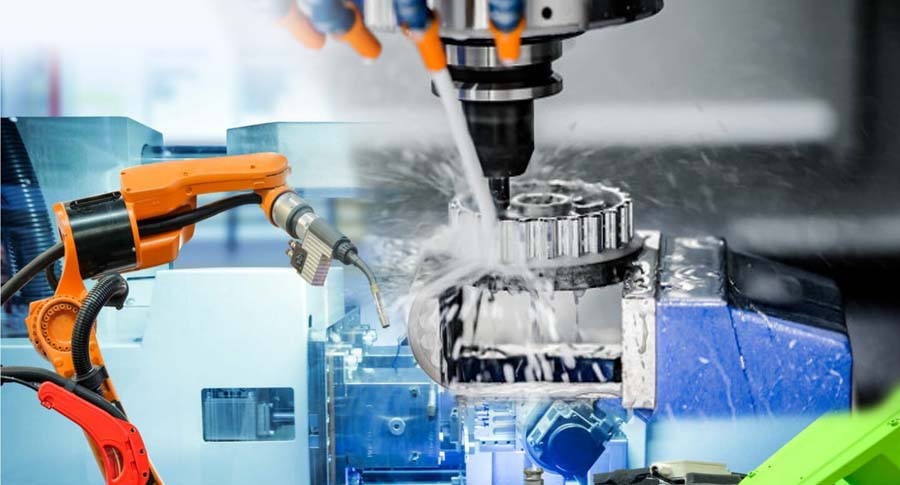In the dynamic landscape of robotics, where precision, efficiency, and reliability are paramount, CNC machining emerges as a driving force. The production of intricate components that power robots demands a level of accuracy that traditional manufacturing methods often struggle to achieve. In the development process of the robotics industry, the role played by CNC machining parts is indispensable. These parts, with their high precision, efficiency, and reliability, provide crucial support for the manufacturing, integration, and daily maintenance of robots.
1. Precision Components:
In the robotic industry, where movements are often measured in micrometers, precision is not just a requirement; it’s a necessity. CNC machining enables the production of components with incredibly tight tolerances, ensuring that every part fits seamlessly into the robotic system. Whether it’s gears, joints, or intricate sensors, CNC machining guarantees the accuracy needed for optimal robot performance. This improvement in accuracy makes robots more precise and stable in executing tasks, thereby improving overall production efficiency and quality.
2. Material Versatility:
Robots are designed for a myriad of applications, from industrial automation to medical surgery. Each application demands specific material properties. CNC machining offers unparalleled versatility in material options, ranging from lightweight aluminum and titanium to robust stainless steel. This adaptability allows manufacturers to tailor components to meet the unique requirements of diverse robotic applications.
3. Complex Geometries:
The efficiency of robots often hinges on the complexity of their components. CNC machining excels in producing intricate and complex geometries that may be challenging or impossible with traditional manufacturing methods. This capability is crucial for creating lightweight yet structurally sound parts that contribute to the overall agility and performance of robots.
4. Prototyping and Iteration:
The robotic industry is marked by rapid technological advancements. Prototyping and iterative design are integral to staying at the forefront of innovation. CNC machining facilitates the quick and precise production of prototypes, allowing engineers to test and refine their designs efficiently. This agility in the development process accelerates the time-to-market for new robotic technologies.

5. Cost-Effective Production:
While precision is paramount, cost-effectiveness is equally crucial in the competitive landscape of the robotic industry. CNC machining offers a cost-effective solution for producing high-precision components in both small batches and large-scale production. The ability to automate many aspects of the machining process contributes to efficiency and cost savings.
6. Enhanced Robotic Performance:
The components produced through CNC machining contribute directly to the overall performance of robots. From gears that dictate movement to intricate parts that house sensors and processors, the quality of machining directly impacts the reliability and functionality of the robotic system.
7. Quality Assurance:
Quality control is non-negotiable in the robotic industry, where malfunctions can have significant consequences. CNC machining, with its automated processes and precision checks, ensures consistent quality across batches. This reliability is essential for the seamless integration and operation of robotic systems.
8.Daily maintenance
CNC machining parts also play an irreplaceable role in the daily maintenance of robots. To ensure the normal operation of the robot, we must pay attention to the durability and reliability of its various components. By using CNC component materials with high strength, wear resistance and corrosion resistance, we can significantly extend the service life of robots and reduce the costs incurred due to maintenance and repair. In addition, these high-quality CNC machined parts can effectively reduce the downtime of the robot, enabling it to maintain stable performance for a longer period of time.
Precision machined parts play a crucial role in the robotics industry. They provide strong support for the manufacturing, integration, and daily maintenance of robots due to their high precision, efficiency, and reliability. With the continuous development of technology, we have reason to believe that CNC parts will play a more important role in the future robotics industry, driving the entire industry towards a higher level.



